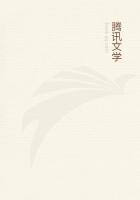This sum of productive forces, capital funds and social forms of intercourse, which every individual and generation finds in existence as something given, is the real basis of what the philosophers have conceived as "substance" and "essence of man", and what they have deified and attacked; a real basis which is not in the least disturbed, in its effect and influence on the development of men, by the fact that these philosophers revolt against it as "self-consciousness" and the "Unique". These conditions of life, which different generations find in existence, decide also whether or not the periodically recurring revolutionary convulsion will be strong enough to overthrow the basis of the entire existing system. And if these material elements of a complete revolution are not present (namely, on the one hand the existing productive forces, on the other the formation of a revolutionary mass, which revolts not only against separate conditions of society up till then, but against the very "production of life" till then, the "total activity" on which it was based), then, as far as practical development is concerned, it is absolutely immaterial whether the idea of this revolution has been expressed a hundred times already, as the history of communism proves.
In the whole conception of history up to the present this real basis of history has either been totally neglected or else considered as a minor matter quite irrelevant to the course of history. History must, therefore, always be written according to an extraneous standard; the real production of life seems to be primeval history, while the truly historical appears to be separated from ordinary life, something extra-superterrestrial. With this the relation of man to nature is excluded from history and hence the antithesis of nature and history is created. The exponents of this conception of history have consequently only been able to see in history the political actions of princes and States, religious and all sorts of theoretical struggles, and in particular in each historical epoch have had to share the illusion of that epoch. For instance, if an epoch imagines itself to be actuated by purely "political" or "religious" motives, although "religion" and "politics" are only forms of its true motives, the historian accepts this opinion.
The "idea", the "conception" of the people in question about their real practice, is transformed into the sole determining, active force, which controls and determines their practice. When the crude form in which the division of labour appears with the Indians and Egyptians calls forth the caste-system in their State and religion, the historian believes that the caste-system is the power which has produced this crude social form. While the French and the English at least hold by the political illusion, which is moderately close to reality, the Germans move in the realm of the "pure spirit", and make religious illusion the driving force of history. The Hegelian philosophy of history is the last consequence, reduced to its "finest expression", of all this German historiography, for which it is not a question of real, nor even of political, interests, but of pure thoughts, which consequently must appear to Saint Bruno as a series of "thoughts" that devour one another and are finally swallowed up in "self-consciousness".
------ [(So-called objective historiography just consists in treating the historical conditions independent of activity. Reactionary character.) marginal note by Marx -- Ed .)
Feuerbach: Philosophic, and Real, Liberation [. . . .] It is also clear from these arguments how grossly Feuerbach is deceiving himself when (Wigand's Vierteljahrsschrift , 1845, Band 2) by virtue of the qualification "common man" he declares himself a communist, transforms the latter into a predicate of "man", and thereby thinks it possible to change the word "communist", which in the real world means the follower of a definite revolutionary party, into a mere category. Feuerbach's whole deduction with regard to the relation of men to one another goes only so far as to prove that men need and always have needed each other.
He wants to establish consciousness of this fact, that is to say, like the other theorists, merely to produce a correct consciousness about an existing fact; whereas for the real communist it is a question of overthrowing the existing state of things. We thoroughly appreciate, moreover, that Feuerbach, in endeavouring to produce consciousness of just this fact, is going as far as a theorist possibly can, without ceasing to be a theorist and philosopher....















